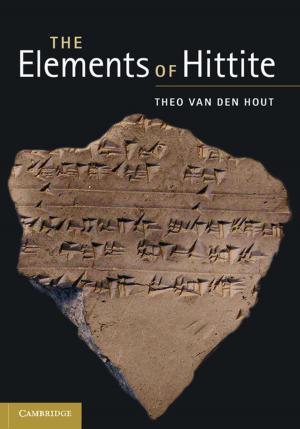The Peasant in Postsocialist China
History, Politics, and Capitalism
Nonfiction, Social & Cultural Studies, Social Science, Sociology, Political Science, History| Author: | Alexander F. Day | ISBN: | 9781107425071 |
| Publisher: | Cambridge University Press | Publication: | July 18, 2013 |
| Imprint: | Cambridge University Press | Language: | English |
| Author: | Alexander F. Day |
| ISBN: | 9781107425071 |
| Publisher: | Cambridge University Press |
| Publication: | July 18, 2013 |
| Imprint: | Cambridge University Press |
| Language: | English |
The role of the peasant in society has been fundamental throughout China's history, posing difficult, much-debated questions for Chinese modernity. Today, as China becomes an economic superpower, the issue continues to loom large. Can the peasantry be integrated into a new Chinese capitalism, or will it form an excluded and marginalized class? Alexander F. Day's highly original appraisal explores the role of the peasantry throughout Chinese history and its importance within the development of post-socialist-era politics. Examining the various ways in which the peasant is historicized, Day shows how different perceptions of the rural lie at the heart of the divergence of contemporary political stances and of new forms of social and political activism in China. Indispensable reading for all those wishing to understand Chinese history and politics, The Peasant in Postsocialist China is a new point of departure in the debate as to the nature of tomorrow's China.
The role of the peasant in society has been fundamental throughout China's history, posing difficult, much-debated questions for Chinese modernity. Today, as China becomes an economic superpower, the issue continues to loom large. Can the peasantry be integrated into a new Chinese capitalism, or will it form an excluded and marginalized class? Alexander F. Day's highly original appraisal explores the role of the peasantry throughout Chinese history and its importance within the development of post-socialist-era politics. Examining the various ways in which the peasant is historicized, Day shows how different perceptions of the rural lie at the heart of the divergence of contemporary political stances and of new forms of social and political activism in China. Indispensable reading for all those wishing to understand Chinese history and politics, The Peasant in Postsocialist China is a new point of departure in the debate as to the nature of tomorrow's China.















